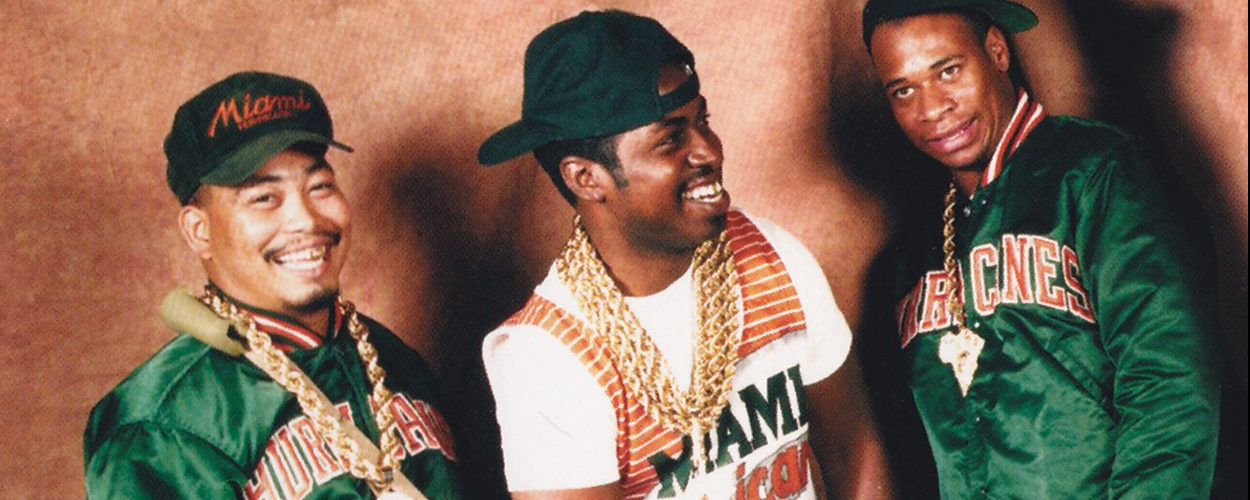This website uses cookies so that we can provide you with the best user experience possible. Cookie information is stored in your browser and performs functions such as recognising you when you return to our website and helping our team to understand which sections of the website you find most interesting and useful.
Artist News Business News Labels & Publishers Legal
Lil Joe Records sues former 2 Live Crew members in termination rights dispute
By Chris Cooke | Published on Monday 25 October 2021

Florida-based Lil Joe Records has sued former 2 Live Crew members as part of a big old termination rights dispute. Several former members of the hip hop outfit reckon they can reclaim the rights in their 1980s and 1990s recordings by exercising that termination right. Lil Joe Records does not concur.
The recordings under dispute were originally released by Luke Records, the label run by 2 Live Crew member Luther Campbell. They were then acquired by Lil Joe Records – along with other copyrights and trademarks controlled by the group – in 1996 when both Campbell and Luke Records went bankrupt.
The label says that its ownership of all those copyrights and trademarks were confirmed in two subsequent legal run ins with members of the Crew. First when Brother Marquis – real name Mark Ross – went bankrupt in 2000. And again when Fresh Kid Ice – real name Christopher Wong Won – tried to register a “fraudulent trademark” in 2002.
But, of course, US copyright law provides a termination right which allows creators who assign their copyrights to another party a one-off opportunity to terminate that assignment and reclaim their rights after 35 years. And, it seems, some of the former members of the Crew – plus the estate of Wong Won, who died in 2017 – are seeking to exercise that termination right in relation to their recordings.
However, Lil Joe Records argues that they don’t have a termination right to exercise. And the label’s lawsuit, filed with the courts in Florida, provides various reasons why it thinks this is the case.
That includes that “the requisite and proper notice has not been provided; Luther Campbell, Luke Records and Mark Ross bankruptcy orders extinguished any ability they might otherwise have to terminate; Christopher Wong Won and Mark Ross each conveyed their termination rights to plaintiff pursuant to written agreements; and there is not a majority of those interested in the copyrights of the Works for a proper termination”.
The other key reason provided in the lawsuit is that the 2 Live Crew recordings were made as ‘works for hire’. This is the most common argument put forward where labels seek to stop artists enforcing the termination right.
The argument goes that US record deals are actually work for hire agreements which, under American copyright rules, makes the label the default owner of the copyright. Which means any artists signed to those labels never actually owned or assigned any rights, meaning there is no assignment to terminate.
Of course, even if that was so, the label entering into the work for hire deals with the Crew was owned by Campbell, so what was his status in relation to the recordings, and does that mean he can exercise the termination right?
The bankruptcy proceedings which led to Lil Joe Records acquiring the rights could in itself complicate any termination rights claim, though last week’s lawsuit had a simpler argument regarding Campbell.
He was an employee of his own label, meaning Luke Records was the copyright owner, and the company’s rights all transferred to Lil Joe Records in 1996. Campbell, the lawsuit reckons, never had any rights in a personal capacity.
There are enough complications in this case which means that, even if Lil Joe Records is successful and the court concludes the former 2 Live Crew members do not enjoy any termination right, it’s unlikely to set any clear precedent regarding whether other artists can use the termination right to reclaim the copyright in their old recordings.
Nevertheless, it’s another interesting test of a termination right which has become pretty routine on the songs side of the music business, but which remains controversial when it comes to recordings.





